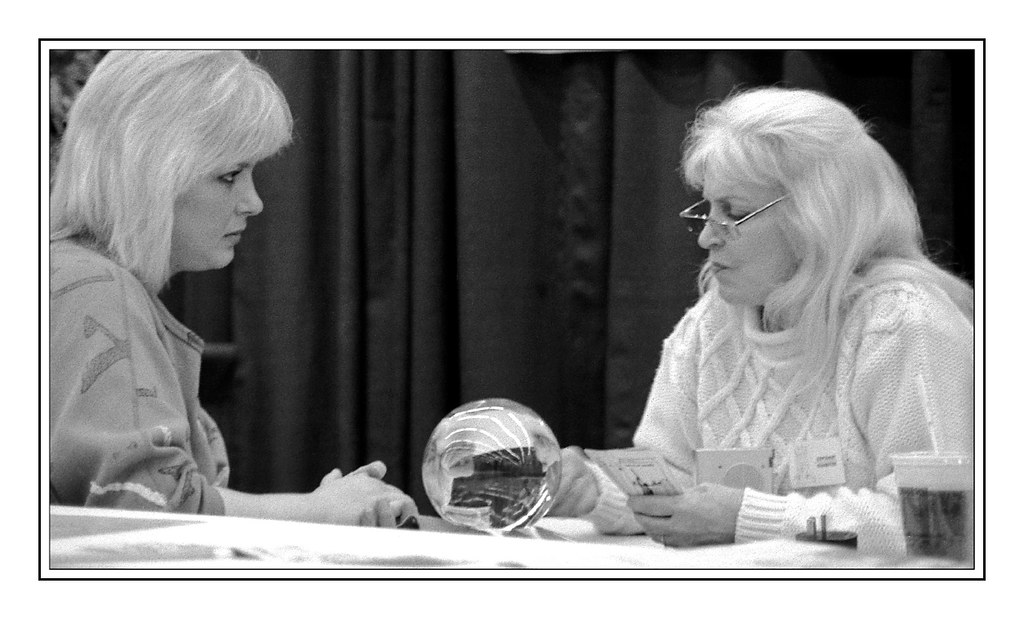The Clairvoyant Executive Director
0 comment
It’s never been easy being a nonprofit executive director and these days a normally challenging job has been made even harder by unprecedented circumstances.

Based on recent conversations with dozens of executive directors, EDs are being asked to do something that only a few other professions, such as those working on infectious diseases, are being asked to do: look into their crystal balls and know the future. The absurdity of this notion, when taken out of context, is obvious. But that same absurdity seems lost on board members when asking the question about what their operation will look like in future months. And yet, that question is being asked of EDs everywhere by their boards and these boards are expecting answers.
My questions to several groups of EDs caught folks short: who made us the soothsayers and why did we agree to that? Where are our crystal balls? Why are so many allowing this absurd expectation to weigh so heavily on their shoulders instead of dismissing it as absurd? Over the decades, I have read hundreds of job descriptions for executive directors of every size organization, every age, every mission area, etc., and I have never once seen it stipulated that a track record of accurately predicting the future is preferred, let alone required.
I’m not being flippant here, but quite serious. The assumption that EDs have this ability has put an extra strain on them that is quite unnecessary. Good EDs everywhere are struggling with the challenge of leading an exceptionally stressed, anxious, emotional, dispersed, and very likely, reduced staff, when they themselves are experiencing those very same things.
As the start of 2021 gets ever closer, boards are piling onto EDs’ shoulders the irrational expectation that they can paint an accurate picture of at least the first two quarters of the new year. And too many EDs are trying to meet this demand, despite the fact that this is one challenge that should not even consider. Again, who gave EDs the burden of being all-knowing? Their crystal balls as are no better than those of board members, so why aren’t board members using their own.
In boon times, good leadership is hard work (and anyone who tells you otherwise is lying, dumb or never tried to be a good leader). We didn’t need a pandemic to make good leadership hard. Sadly, what the pandemic has done, however, is make more really good leaders doubt themselves.
Decades of anecdotal research makes me believe that very few good leaders haven’t experienced self-doubt, where the fear bubbles up that they will be “discovered” as the fraud they are, that they aren’t really capable of doing the job, they don’t really know enough, they aren’t really smart enough, they just simply aren’t good enough to be an ED, etc.
Yet, despite the consistent presence of this fear, I cannot recall a time when this self-doubt has come out in such force. EDs who have successfully been in leadership roles for years and years, decades and decades, are doubting their ability to lead through this current crisis due, in large part, to their board’s expectations that they—EDs on their own—will use their clairvoyance to create the organization’s successful path forward.
This, though, is one of the beauties of the structure of a healthy nonprofit: it was never the intent that an ED would have to go it alone. Rather, the intent was that the ED and the board would engage in shared leadership, playing to and off of the various strengths that the ED and every board member, and the collective as a whole, brought to the partnership of board /board members and ED. To the extent that any of us can see into the future, it was always meant to be a shared experience, jointly explored, jointly diagnosed and jointly planned for, with multiple scenarios and not an isolated, solo process.
Twenty years ago, in Bowling Alone: The Collapse and Revival of American Society, Robert Putnam pointed out the decline in community and the serious consequences of losing community due to ever more people doing it on their own. Just because many of us are physically working in isolation does not mean that we must do things alone, nor should we expect one person to see the solution to a problem that is ever-evolving and which no one has ever experienced previously. Good EDs are borderline magical, but they do not come equipped with working crystal balls. And if one says otherwise, don’t believe it.
The opinions expressed in Nonprofit University Blog are those of writer and do not necessarily reflect the opinion of La Salle University or any other institution or individual.
